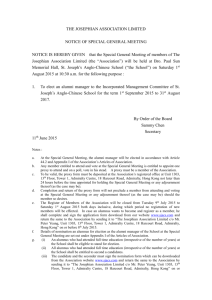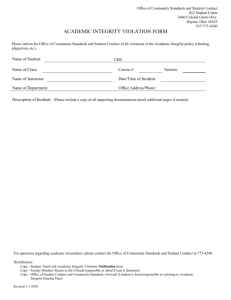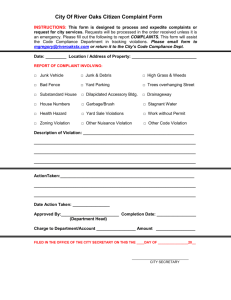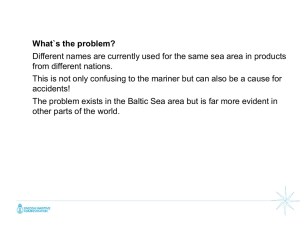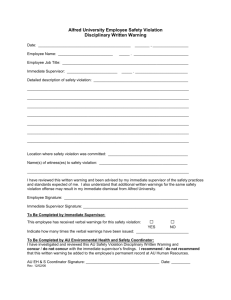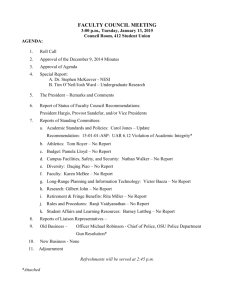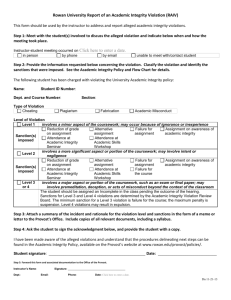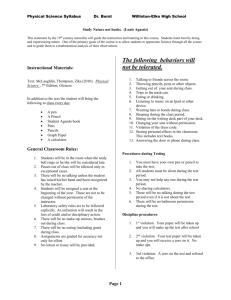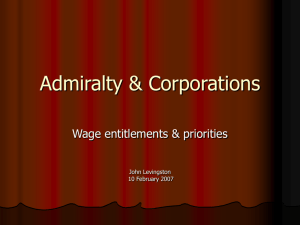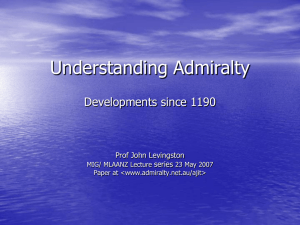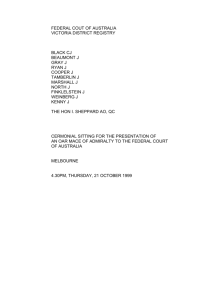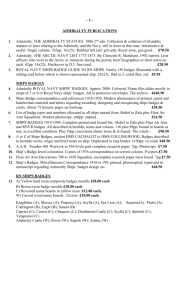Postal Mailing and Court words
advertisement
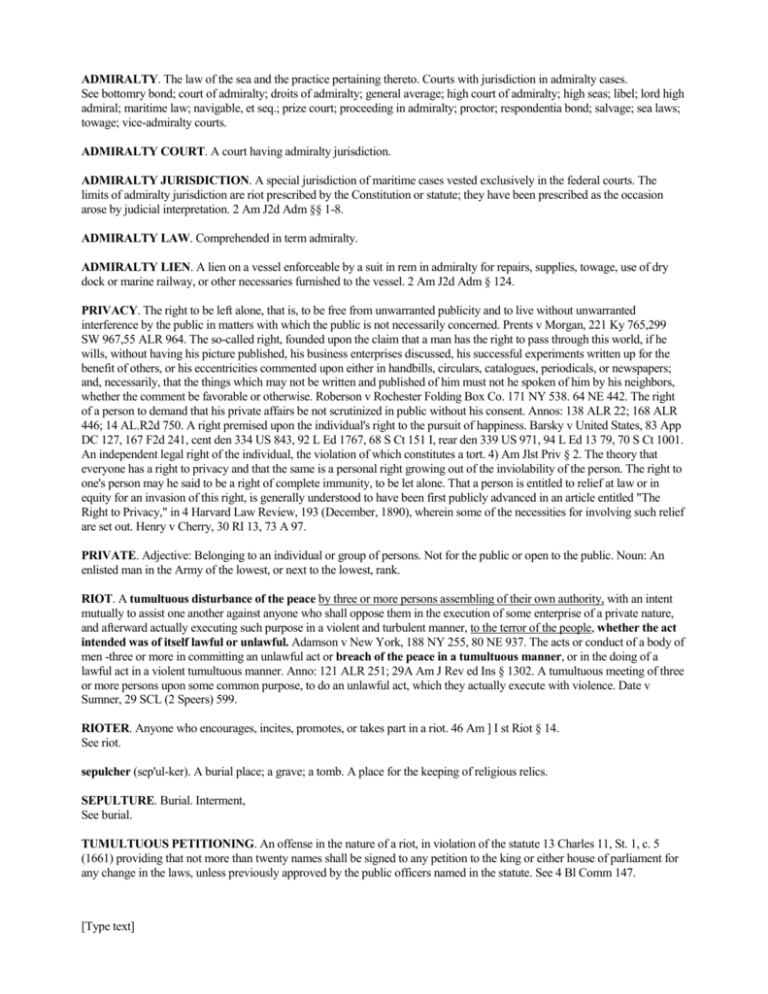
ADMIRALTY. The law of the sea and the practice pertaining thereto. Courts with jurisdiction in admiralty cases. See bottomry bond; court of admiralty; droits of admiralty; general average; high court of admiralty; high seas; libel; lord high admiral; maritime law; navigable, et seq.; prize court; proceeding in admiralty; proctor; respondentia bond; salvage; sea laws; towage; vice-admiralty courts. ADMIRALTY COURT. A court having admiralty jurisdiction. ADMIRALTY JURISDICTION. A special jurisdiction of maritime cases vested exclusively in the federal courts. The limits of admiralty jurisdiction are riot prescribed by the Constitution or statute; they have been prescribed as the occasion arose by judicial interpretation. 2 Am J2d Adm §§ 1-8. ADMIRALTY LAW. Comprehended in term admiralty. ADMIRALTY LIEN. A lien on a vessel enforceable by a suit in rem in admiralty for repairs, supplies, towage, use of dry dock or marine railway, or other necessaries furnished to the vessel. 2 Am J2d Adm § 124. PRIVACY. The right to be left alone, that is, to be free from unwarranted publicity and to live without unwarranted interference by the public in matters with which the public is not necessarily concerned. Prents v Morgan, 221 Ky 765,299 SW 967,55 ALR 964. The so-called right, founded upon the claim that a man has the right to pass through this world, if he wills, without having his picture published, his business enterprises discussed, his successful experiments written up for the benefit of others, or his eccentricities commented upon either in handbills, circulars, catalogues, periodicals, or newspapers; and, necessarily, that the things which may not be written and published of him must not he spoken of him by his neighbors, whether the comment be favorable or otherwise. Roberson v Rochester Folding Box Co. 171 NY 538. 64 NE 442. The right of a person to demand that his private affairs be not scrutinized in public without his consent. Annos: 138 ALR 22; 168 ALR 446; 14 AL.R2d 750. A right premised upon the individual's right to the pursuit of happiness. Barsky v United States, 83 App DC 127, 167 F2d 241, cent den 334 US 843, 92 L Ed 1767, 68 S Ct 151 I, rear den 339 US 971, 94 L Ed 13 79, 70 S Ct 1001. An independent legal right of the individual, the violation of which constitutes a tort. 4) Am Jlst Priv § 2. The theory that everyone has a right to privacy and that the same is a personal right growing out of the inviolability of the person. The right to one's person may he said to be a right of complete immunity, to be let alone. That a person is entitled to relief at law or in equity for an invasion of this right, is generally understood to have been first publicly advanced in an article entitled "The Right to Privacy," in 4 Harvard Law Review, 193 (December, 1890), wherein some of the necessities for involving such relief are set out. Henry v Cherry, 30 RI 13, 73 A 97. PRIVATE. Adjective: Belonging to an individual or group of persons. Not for the public or open to the public. Noun: An enlisted man in the Army of the lowest, or next to the lowest, rank. RIOT. A tumultuous disturbance of the peace by three or more persons assembling of their own authority, with an intent mutually to assist one another against anyone who shall oppose them in the execution of some enterprise of a private nature, and afterward actually executing such purpose in a violent and turbulent manner, to the terror of the people, whether the act intended was of itself lawful or unlawful. Adamson v New York, 188 NY 255, 80 NE 937. The acts or conduct of a body of men -three or more in committing an unlawful act or breach of the peace in a tumultuous manner, or in the doing of a lawful act in a violent tumultuous manner. Anno: 121 ALR 251; 29A Am J Rev ed Ins § 1302. A tumultuous meeting of three or more persons upon some common purpose, to do an unlawful act, which they actually execute with violence. Date v Sumner, 29 SCL (2 Speers) 599. RIOTER. Anyone who encourages, incites, promotes, or takes part in a riot. 46 Am ] I st Riot § 14. See riot. sepulcher (sep'ul-ker). A burial place; a grave; a tomb. A place for the keeping of religious relics. SEPULTURE. Burial. Interment, See burial. TUMULTUOUS PETITIONING. An offense in the nature of a riot, in violation of the statute 13 Charles 11, St. 1, c. 5 (1661) providing that not more than twenty names shall be signed to any petition to the king or either house of parliament for any change in the laws, unless previously approved by the public officers named in the statute. See 4 Bl Comm 147. [Type text] VIOLATE. To break; to infringe; to disobey: as, to violate a statute. To force; to ravish. State v Montgomery, 79 Iowa 737, 739, 45 NW 292. VIOLATION OF BLOCKADE. A cause under prize law for the forfeiture of ship, and in some cases its cargo, to capture and condemnation. 56 Am J 1st War § 174. To constitute a violation of blockade, three things must be proved: first, the existence of an actual blockade; second, the knowledge of the party supposed to have offended; and third, some act of violation, either by going in or coming out with a cargo laden after the commencement of the blockade. 56 Am Jl st War § 175. VIOLATION OF LAW. To fail to observe the law whether by act of commission or omission. State v Case, 53 Mo 246, 250. In its ordinary sense, the expression includes the violation of a positive law, whether the law is a civil or a criminal law. See Bloom v Franklin Life Ins. Co. 97 Ind 478. As to what constitutes a "violation of law as to age," within the meaning of the phrase as it appears in an exclusion clause of an automobile insurance policy, see Anno: 72 ALR ] 079. VIOLATION OF PRIVACY. The actionable wrong of interfering with another person's seclusion by subjecting him to unwarranted and undesired publicity. The usual form of violation has been the publication of another's name or picture for selfish purposes or for purposes of trade. 41 Am JIst Priv §§ 20 et seq. VIOLATION OF SEPULTER. A crime, as well as a civil wrong, in disturbing the repose of the dead by an unauthorized exhumation and removal of remains or the desecration of a grave by an act affecting the grave or the body therein interred. 22 Am J2d Dead B § 18. VIOLATION OF STATUTE. See violation of law. VIOLENCE. Physical force applied so as to injure or damage. Alexander v State, 40 Tex Crim 395, 411, 49 SW 229, 50 SW 716. The snatching or jerking the property of another from his person, where such property is so attached to his person or clothing as to afford resistance, or all antecedent or contemporaneous struggle over the taking of the property will constitute that violence essential for robbery, but a mere filching of loose property from the pocket with no more force than is necessary to lift and remove the property from the pocket is not a taking by force or violence, and is a mere larceny. See State v Parker, 262 Mo 169, l70 SW 1121. See physical force; physical violence. VIOLENT. Acting with physical force. See violence. VIOLENT DEATH. Death caused by an external agency; not occurring in the ordinary course of nature from disease or a wasting of the body. VIOLENT MEANS. An act not occurring in the ordinary course of events, involving the application of force, however slight. Schonberg v New York Life Ins. Co. 235 La 461, 104 So 2d 171. See accidental means. VIOLENT PRESUMPTION. A presumption which is very strong and forcible, although not necessarily a conclusive or irrebuttable one. It is an inference which the law unhesitatingly requires to be drawn from given facts; it is a conclusion quite self-evident from the premises. Shealy & Finn v Edwards, 75 Ala 411, 419. [Type text]
